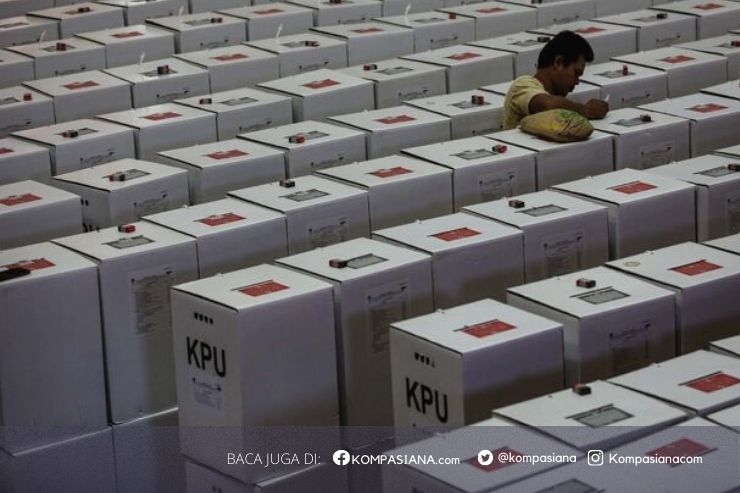The Pajak Pertambahan Nilai (PPN) is Indonesia's version of the Value-Added Tax (VAT), managed by the Directorate General of Taxes (Direktorat Jenderal Pajak) under the Ministry of Finance. The current Minister of Finance, Sri Mulyani Indrawati, oversees this tax policy as part of the country's broader fiscal strategy. VAT is a consumption tax applied at every stage of production and distribution, with businesses collecting the tax from consumers and remitting it to the government. In 2022, the VAT rate was increased from 10% to 12% to strengthen government revenues, particularly for funding public infrastructure, healthcare, education, and other essential services. The Ministry of Finance argued that the increase would enhance Indonesia's development capacity and improve public service delivery.
The impact of the VAT increase on Gen Z, those born between 1997 and 2012, is particularly significant as this generation enters the workforce or pursues higher education during challenging economic times. The VAT hike affects many products and services integral to Gen Z's lifestyle and social connectivity, including digital services, entertainment, and social experiences. Key areas impacted are streaming platforms (such as Netflix, Spotify, and Disney+), gaming platforms and in-game purchases, online learning resources, food delivery services, and ride-sharing apps. In terms of social and lifestyle experiences, Gen Z is also affected by increased costs for cafes, dining out, fashion and personal care products, fitness memberships, wellness services, and travel or experiential activities.
Furthermore, access to these experiences broadens Gen Z's perspectives and helps develop cultural capital. In terms of mental health and work-life balance, affordable leisure activities provide much-needed stress relief, entertainment offers breaks from academic and work pressures, and wellness services support both physical and mental health.
the VAT increase makes these experiences less accessible, particularly for students with limited income, young professionals in entry-level positions, freelancers, gig workers, and those living in urban areas with high living costs. The resulting reduced access to these "affordable luxuries" could lead to several negative outcomes, including increased social isolation, limited networking opportunities, and a diminished quality of life. Gen Z may also face greater mental health challenges and experience widening social and professional gaps within their generation, especially between those with higher incomes and those struggling financially.
For Gen Z, these "luxuries" are often more than just entertainment; they represent investments in personal growth, professional development, and mental well-being. The VAT increase risks creating a two-tiered system, where only more privileged members of Gen Z can continue to access these crucial social and cultural experiences, potentially exacerbating existing inequalities within this generation.
Gen Z has shown a strong desire to become entrepreneurs and business owners, motivated by a desire for independence, innovation, and the flexibility to shape their careers in a rapidly changing world. Many members of this generation are drawn to starting small businesses, particularly in the digital space, where they can leverage online platforms for e-commerce, content creation, and service-based ventures. However, the recent increase in Indonesia's VAT rate from 10% to 12% could dampen this entrepreneurial spirit by making it more difficult for young entrepreneurs to sustain and grow their businesses. The higher tax burden raises costs for both business owners and consumers, potentially reducing profitability and making it harder to compete in an already challenging market.
This is particularly concerning for Gen Z, many of whom are already navigating financial pressures, limited access to capital, and the economic aftermath of the pandemic. The VAT increase seems to contradict the government's earlier efforts to support small businesses during the pandemic, when subsidies and tax breaks were introduced to help entrepreneurs survive the crisis. Instead of fostering a thriving entrepreneurial ecosystem, the new VAT policy could push young entrepreneurs away from pursuing their ambitions, creating a barrier to entry for those with limited financial resources, and undermining the government's earlier efforts to stimulate business growth and recovery.
The VAT increase also places an economic burden on the working class. Workers with fixed salaries experience reduced purchasing power, while small business owners must either absorb the tax increase or risk of losing customers.
Lastly, Adding to the regional comparison analysis, the higher VAT rate in Indonesia, compared to neighboring ASEAN countries, may inadvertently weaken nationalism and trigger a concerning brain drain effect among Gen Z. Rather than investing their talents in developing Indonesia, young professionals and entrepreneurs may be incentivized to relocate to countries like Singapore, which has a 9% GST, or Thailand, where the VAT is 7%, as these places offer more manageable living costs and tax burdens.
This exodus of young talent could have several negative consequences for Indonesia: it could deprive the country of innovative minds that could contribute to national development, reduce the pool of future leaders and change-makers committed to improving Indonesian society, and weaken the emotional and economic investment of Gen Z in the country's future. As more of Indonesia's capable young individuals build their careers and businesses abroad, they take with them valuable skills, tax contributions, and the potential for job creation.
This potential erosion of nationalism through economic policy presents a significant concern, as it contradicts Indonesia's goals of fostering domestic growth and development. Instead of channeling Gen Z's entrepreneurial spirit and innovation toward building a stronger Indonesia, the high VAT rate may inadvertently push them to contribute their talents to the development of other ASEAN nations, creating a long-term challenge for Indonesia's economic and social progress.
Follow Instagram @kompasianacom juga Tiktok @kompasiana biar nggak ketinggalan event seru komunitas dan tips dapat cuan dari Kompasiana. Baca juga cerita inspiratif langsung dari smartphone kamu dengan bergabung di WhatsApp Channel Kompasiana di SINI







